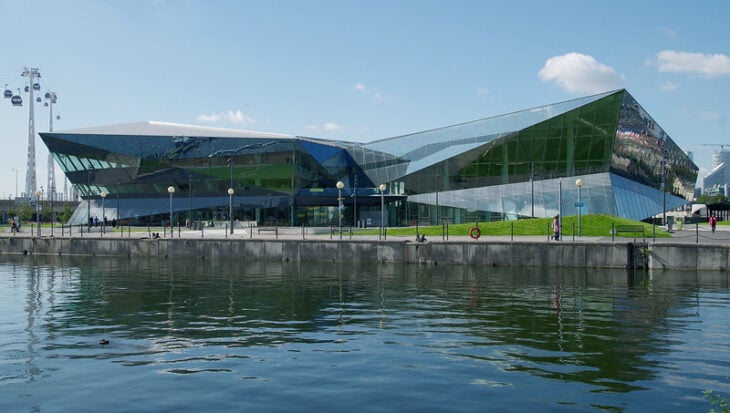If a new proclamation is to be believed, the UK’s unelected second chamber is apparently ‘on course’ to reduce in size, ‘within the timeframe set out’ in a report by a House of Lords committee last year. Or is it?
Under huge pressure from campaigners like ourselves and public outcry, the Lords have been (slowly) discussing how to reform themselves – without having to go through that tiresome process known as ‘democracy’ (indeed, their consultation on the matter explicitly ruled out discussing elections).
After a year of silence following the Lord Speaker’s report on how to do this – which essentially suggested asking parties to cap their numbers – the Lord Speaker’s Committee have published a follow-up report, saying they are on track, and “have taken an important step forward this year in moving toward a smaller, more effective House”. How? By continuing to rely on Lords dying off or retiring. So that’s all right then.
There are four serious problems with the idea that ‘all is well’ when it comes to cutting the number of peers.
-
A low bar for progress …
Not included in the latest Lords statement is the fact the ‘target’ they’re heading towards is 600 members…
Currently, the Lords stands at around 800 members. The Lords is the biggest second chamber in the world and second largest legislative chamber in the world… after China’s enormous rubber-stamping National People’s Congress. It is almost alone in remaining entirely-appointed among advanced democracies.
But even if peers reach the target of 600 members, the Lords will still be the biggest second chamber in the world. France manages on 348 members. Spain with 257. India, with over a billion people, has just 245 and Japan 242 (and bear in mind these are all in the top ten largest).
[bctt tweet=”Even if peers reach their target of 600 members, the Lords will still be the biggest second chamber in the world. France manages on 348. Spain with 257. India, with over a billion people, has just 245″ username=”electoralreform”]
There is absolutely no need for our revising chamber to be packed to the rafters with unaccountable appointees and political donors. We could secure a much more efficient, hard-working, dedicated revising chamber if we stopped treating it as a retirement home for party grandees.
-
…by 2032
It’s very telling that the press release talks about being on track ‘within the time-frame’ rather than a specific year.
That’s because Nasa plans to have people on Mars by the time these proposals are fully introduced.
Bizarrely, the new report doesn’t refer to the ‘time frame’ either. Perhaps out of embarrassment: the time frame is by the end of the 2027-2032 Parliament.
In a world of driverless cars and artificial intelligence, the Lords could remain totally unelected: run by Bishops, hereditary peers and friends of the Prime Minister.
[bctt tweet=”In a world of driverless cars and artificial intelligence, the Lords could remain totally unelected: run by Bishops, hereditary peers and friends of the Prime Minister.” username=”electoralreform”]
Oh, we should note that the power of the Church of England Bishops and hereditary peers will actually increase – their number is fixed; so while the number of other Lords goes down, theirs stays the same, increasing their voting power.
-
Twisting the numbers
Not only are these goals depressing in their lack of ambition, the claim that the House is currently ‘on track’ appears to totally ignore the 13 new peerages Theresa May made in May this year.
[bctt tweet=”The claim that the House of Lords is currently ‘on track’ to reduce its size appears to totally ignore the 13 new peerages Theresa May made in May this year.” username=”electoralreform”]
During the clamour of the Royal Wedding, the PM pushed through over a dozen partisan appointments.
But because “the Prime Minister forewarned [the Committee] about [it] and described as ‘a legacy issue arising from the general election’, the Lord Speaker’s Committee have decided not to include those appointments in their figures.”
That’s like giving up biscuits for lent, then allowing yourself a pack of rich teas on the first weekend, simply because you wanted to ‘in advance’…
Theresa May has promised: “I intend to continue with the restraint [re. new peerages] I have exercised to date, and when making appointments, to allocate them fairly.”
Here lies a further problem. With no legal basis, Theresa May or the next Prime Minister could just choose to ignore the plan altogether.
-
Missing the point
It’s frankly astounding that being ‘on target’ to reduce the size of the Lords to 600 by 2027 – or 2032 when you include Bishops – is treated as a tremendous ‘step forward’.
One would almost assume the Lord Speaker’s report was a mere attempt to ‘look busy’ in the face of overwhelming calls for real reform of the bloated, undemocratic second chamber.
This latest statement from the Lords comes at an interesting time: this week the Times revealed that some Lords are actively lobbying for foreign states and Russian business interests.
You couldn’t make it up. And of course, with no public sanction, they can get away with it. Smaller Lords or no, there is absolutely no way for voters to kick out these lobbyist Lords.
This issue and others (including expenses cheating) will not go away until the light of accountability shines on the oversized, undemocratic edifice that is the ‘upper’ house.
We are beyond the point of sticking plaster solutions now: let’s treat this problem for good.


